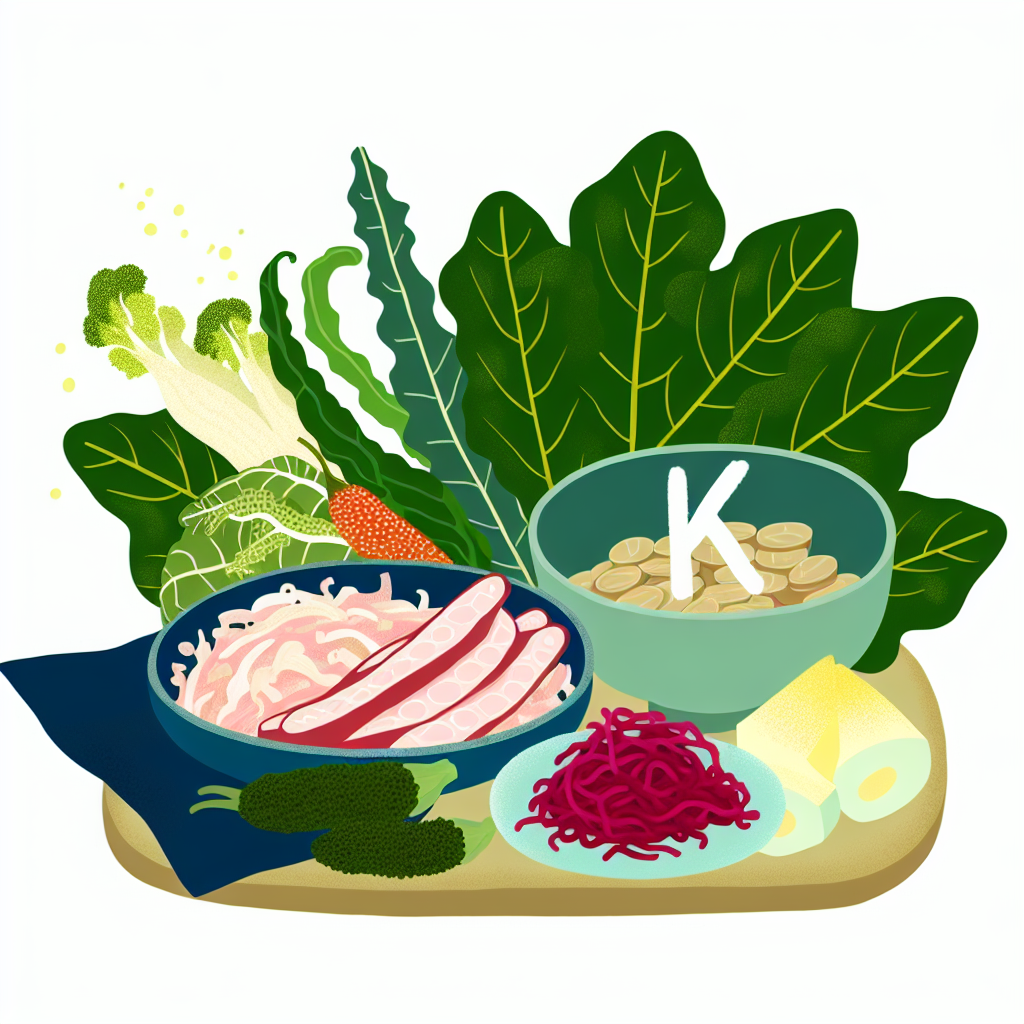When it comes to essential vitamins, vitamin K doesn’t often steal the spotlight. However, this fat-soluble nutrient works behind the scenes to keep your body functioning smoothly. It helps your blood clot properly, strengthens bones, and even supports cardiovascular health. Yet many people don’t realize how easy it is to incorporate this vital vitamin into their daily diet.
Vitamin K exists in two main forms: vitamin K1, which is found in plant-based foods like leafy greens, and vitamin K2, present in animal products and fermented foods. Both are essential, though they serve slightly different roles in keeping your body healthy. In this article, we’ll highlight the top 10 foods rich in vitamin K, explain their health benefits, and show you how these delicious options can improve your diet and overall well-being.
What Is Vitamin K and Why Do You Need It?
Vitamin K plays a critical role in several key bodily functions. Its most well-known job? Helping your blood clot. Think of it as your body’s emergency response team. Whenever you get a cut, vitamin K activates proteins necessary for clot formation, preventing excessive bleeding.
But its importance doesn’t stop there. Vitamin K regulates calcium in your body, ensuring it strengthens bones and doesn’t accumulate in your arteries. This process promotes bone health and lowers the risk of heart disease. Vitamin K deficiencies are rare but can affect people with poor diets or certain medical conditions. If you’ve noticed excessive bruising, bleeding gums, or weaker bones, it might be worth incorporating more vitamin K-rich foods into your meals.
Top 10 Foods Rich in Vitamin K
If eating a vitamin K-rich diet sounds daunting, don’t worry—it’s easier (and tastier) than you think. Here are some of the best foods to help you meet your daily vitamin K needs.
-
Leafy Greens
Spinach, kale, collard greens, and Swiss chard are vitamin K1 kings. Just one cup of raw spinach provides over 150% of your daily intake. Toss spinach into smoothies, use kale as a salad base, or sauté collard greens with garlic. Pair these greens with heart-healthy olive oil to maximize absorption.
-
Fermented Foods
Fermented foods like natto, sauerkraut, and kimchi are excellent sources of vitamin K2. Natto, a traditional Japanese dish, has a strong flavor but is packed with K2. If natto isn’t for you, try milder options like sauerkraut, which adds a delicious tang to wraps and salads.
-
Herbs and Spices
Fresh herbs like parsley and basil are small but mighty sources of vitamin K. Just two tablespoons of parsley contain more than your daily requirement! Use herbs to garnish soups, sprinkle on pasta, or brighten any dish with flavor and nutrients.
-
Brussels Sprouts and Cabbage
These cruciferous veggies are loaded with vitamin K1. Roast Brussels sprouts with a drizzle of olive oil for a crispy, flavorful side dish, or use cabbage in slaws, stir-fries, or fermented recipes like sauerkraut.
-
Fatty Fish and Organ Meats
Salmon, mackerel, and chicken liver are fantastic sources of vitamin K2. Fatty fish also provides omega-3s for heart health. If organ meats aren’t your thing, try incorporating them into spreads like pâté for a more approachable option.
-
Egg Yolks
The yolks in eggs are rich in vitamin K2. Whether fried, scrambled, or boiled, eggs are versatile and easy to include in your diet. For a nutrient-packed breakfast, try topping your avocado toast with a poached egg.
-
Cheese and Dairy Products
Aged cheeses like Gouda and cheddar are excellent sources of vitamin K2, while butter contains smaller amounts. Create a cheese board with Gouda, nuts, and fresh fruit for a delicious snack or appetizer.
-
Fruits: Avocado, Kiwi, and Prunes
Though fruits typically contain lower levels of vitamin K, avocados, kiwis, and prunes pack moderate amounts. Avocado toast or kiwis in fruit salads are simple ways to enjoy these tasty fruits while benefiting from their nutrients.
-
Peas and Green Beans
Peas and green beans aren’t only packed with fiber—they also deliver a decent dose of vitamin K1. A quick sauté with garlic makes them a flavorful, nutrient-rich side dish for any meal.
-
Vegetable Oils
Vegetable oils like soybean and canola oil provide small amounts of vitamin K1. While not a primary source, using oils to cook or dressing salads enhances vitamin absorption from other foods.
How Much Vitamin K Do You Need Daily?
The recommended daily intake (RDI) for vitamin K depends on your age and gender:
- Men: 120 micrograms per day
- Women: 90 micrograms per day
For children, the elderly, or pregnant women, needs may vary. Pairing vitamin K-rich foods with healthy fats—like olive oil or butter—can increase absorption, ensuring your body gets the most out of these nutrients.
Benefits of a Vitamin K-Rich Diet
A diet full of vitamin K-rich foods can do wonders for your health. Some key benefits include:
- Stronger bones: Vitamin K regulates calcium, reducing your risk of fractures and osteoporosis.
- Improved heart health: Vitamin K2 prevents calcium buildup in arteries, lowering heart disease risks.
- Efficient blood clotting: Proper levels of vitamin K help wounds heal quickly and prevent excessive bleeding.
Can You Overdo Vitamin K?
It’s almost impossible to consume too much vitamin K through food. Your body does a great job of regulating it naturally. However, for those on blood-thinning medications like warfarin, diet adjustments might be necessary. Always consult your doctor before making major dietary changes.
Conclusion
Vitamin K might not get all the attention it deserves, but it’s a superstar when it comes to maintaining strong bones, a healthy heart, and proper blood clotting. Luckily, eating more vitamin K-rich foods doesn’t mean changing your whole routine. Start by adding spinach to your smoothies, roasting Brussels sprouts for dinner, or enjoying an avocado salad alongside aged cheese. These small, simple steps can make a big impact on your overall health.
Ready to give your body the vitamin K boost it deserves? Start including these foods in your meals, and let the benefits unfold!
